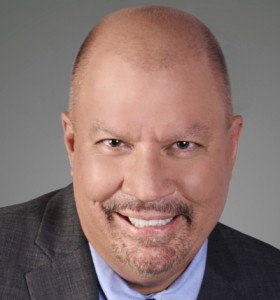Q&A: Billing for Chronic Care Management: What are the Problematic Issues?
 Markus P. Cicka, J.D., LL.M. (Health Law) owner of the Law Office of Markus P. Cicka, LLC, presented the webinar Making Your Referral Sources Legal. Here, Markus joins us on our blog concerning Billing for Chronic Care Management: What are the Problematic Issues?
Markus P. Cicka, J.D., LL.M. (Health Law) owner of the Law Office of Markus P. Cicka, LLC, presented the webinar Making Your Referral Sources Legal. Here, Markus joins us on our blog concerning Billing for Chronic Care Management: What are the Problematic Issues?
What is the history of medicare allowing providers to bill for chronic care management services?
Beginning in 2015, CMS allowed Medicare payments to providers under the Medicare Physician Fee Schedule (“PFS”) for chronic care management (“CCM”) in certain situations. Prior to 2015, physicians could not bill separately for typical non-face-to-face care management services in these situations.
Which are the applicable provider settings?
The PFS is comprised of three main parts: the physician’s work, the practice expense, and the malpractice insurance expense. Physicians are paid under this fee schedule regardless of setting, and two of the three components—the physician’s work and the malpractice insurance expense—remain constant irrespective of setting.
How is payment under the physician fee schedule calculated?
First and foremost, the entire medical training system (i.e. medical schools, residency programs, continuing education programs, etc.) must be far more focused on compliance training of the providers, not just support staff and administration. Too many providers have relied on support staff that were not adequately educated and the provider ends up paying a severe price for someone else’s failure.
What about the practice expense? Does that remain constant?
The practice expense is not constant. Rather, if the services are rendered in certain facilities, including a hospital, the practice expense component is reduced since these costs are subsumed in the facility payment when the services are provided in an outpatient facility.
Therefore, when a physician renders a service in an outpatient facility there are generally two claims: one claim submitted by the physician under the PFS and one submitted by the outpatient facility under the Outpatient Prospective Payment System (“OPPS”).
What is Chronic Care Management?
CCM involves the provision of at least 20 minutes per month of non-face-to-face services to Medicare beneficiaries who have two or more chronic conditions expected to last at least 12 months, or until the death of the beneficiary, that place the beneficiary at significant risk of death, acute exacerbation or decompensation, or functional decline. Physicians and nonphysician practitioners (collectively “physicians”) can bill for CCM.
CCM services are provided by a physician (or at the direction of a physician) on a per calendar month basis. A physician may bill for CCM services only once per month for a beneficiary, and only one physician and one facility may bill for CCM services each month for a beneficiary.
Can CCM services overlap with home healthcare and hospice supervision?
CCM services include care management services that are also an integral part of transitional care management services (CPT codes 99495 and 99496), home healthcare supervision (HCPCS code G0181), hospice care supervision (HCPCS code G0182), and certain end-stage renal disease (ESRD) services (CPT codes 90951 through 90970).
Therefore, these codes include overlapping care management services, and no physician may bill for CCM during the same month for which he or she bills for these other services.
What are the problematic billing issues?
While the implementation of a CMS policy for CCM payments should be applauded, healthcare providers billing for CCM should be aware of certain issues recently flagged by the OIG. These issues are:
- Providers or facilities billing CCM services more than once for the same beneficiaries for the same service period. In some cases, the same CCM services were billed by a single physician or facility; in other cases, the same CCM services were billed by more than one physician or facility;
- The same physician billing for both CCM services and overlapping care management services for the same beneficiaries; and
- CCM services were billed by an outpatient facility but a corresponding claim was not submitted by a physician.
With respect to the last issue, why wouldn’t a physician submit a claim?
There is no requirement that CCM services billed by outpatient facility have a corresponding claim billed by a physician. Also, there may be reasons a billing physician would not submit a claim, including (1) the physician chose not to do so, (2) the physician did not meet all CCM requirements, (3) the physician did not know that he or she could submit claims for CCM services, (4) the outpatient facility’s clinical staff did not render the required CCM services, or (5) the facility’s clinical staff was not under the direction of a physician.

Markus P. Cicka, J.D., LL.M. (Health Law), is the owner of the Law Office of Markus P. Cicka, LLC, a law firm based in Saint Louis, Missouri. He represents home health agencies, pharmacies, home medical equipment companies, clinical laboratories and other health care providers throughout the United States. He can be reached at (877) 579-9499 (telephone & facsimile); markus@cickalaw.com (email); https://cicka-law.com/ (website) or https://www.linkedin.com/in/markuscicka/ (LinkedIn).
Be sure to view Markus recent webinar with us Making Your Referral Sources Legal and be on the lookout for our upcoming podcast. Also available on-demand in our shopping cart as part of our online compliance training courses, you can find: Diagnosis Coding Training Course – The Cost of One and Done, Physician Distribution of Durable Medical Equipment, and a particularly relevant poster set on Protecting Healthcare Personnel and Patients Poster Set.

